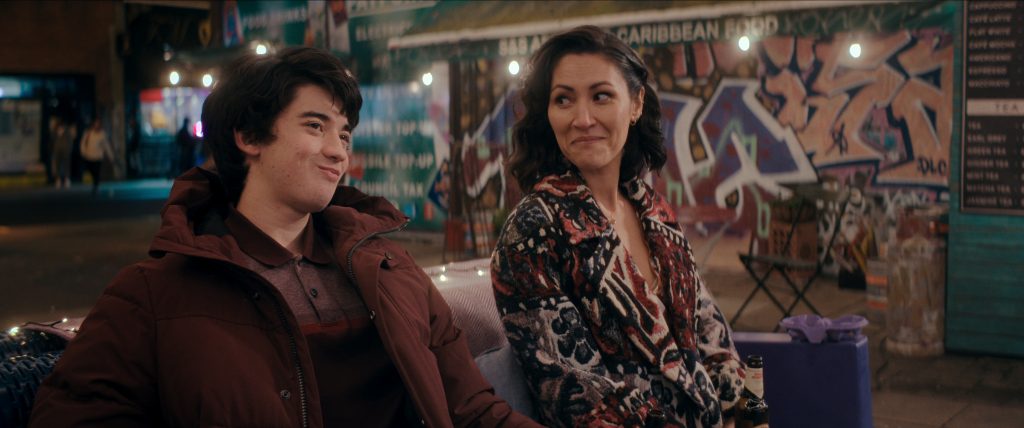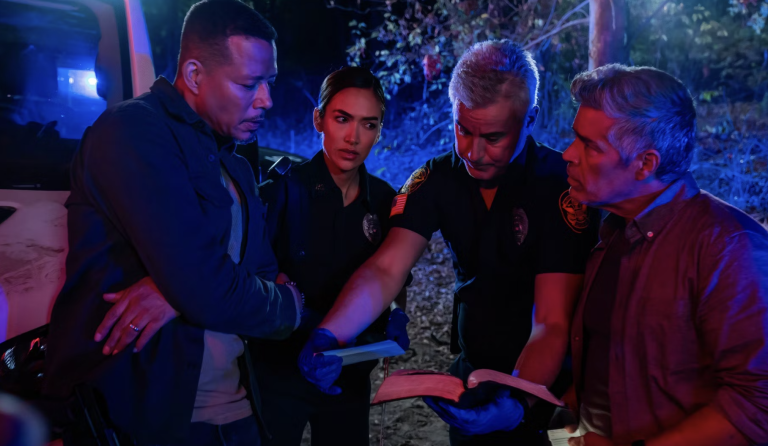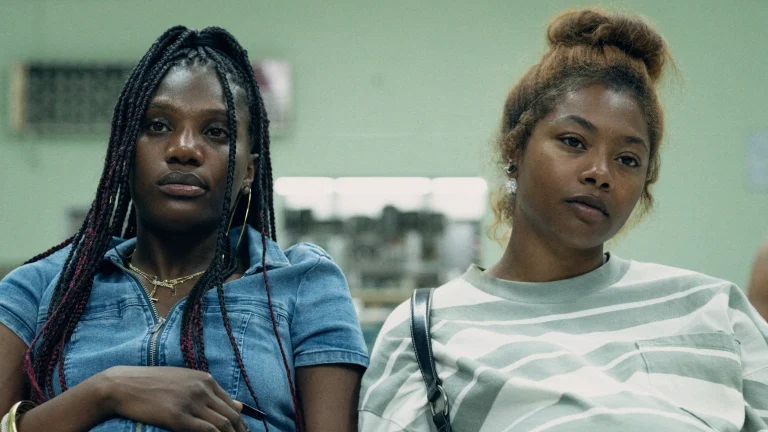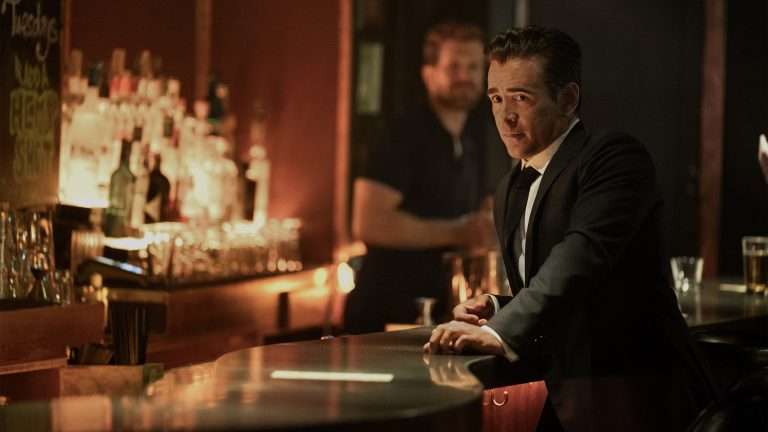The name ‘I Used To Be Famous’ pretty much condenses what Netflix’s latest musical drama is all about. If it invokes the story of a has-been in your imagination, it indeed is so. If it makes you think that it is about regrets, followed by a redemptive arc, you couldn’t be more correct. In fact, what you imagine a film like this to be is exactly what it is. For some, it might be a nice watch over the weekend – a light, heartwarming film that doesn’t steer a bit away from the formula set by previous films of the sort. On the other hand, that can be exactly what drives some people away.
Vinnie D (Ed Skrein) was once a member of a boy band, Stereo Dream, that was pretty big in the early noughties. Hoards of screaming fans, mostly young girls, ushered them onto garishly lit stages as they began their perfectly synced performances. Twenty years later, it all seems like a dream. Struggling to make ends meet, Vince now would be thankful to get an audience at a pub. But what would he do if he even got that?
Sick and tired of rejections, he sits down in the middle of Rye Lane to ‘practice’ when a young fellow joins him, playing drums on the bench. It turns out to be quite a hit with the passers-by. Stevie (Leo Long), an autistic eighteen-year-old, loves John Dejohnette and Bach while dreaming of nothing other than getting into a good music school. Their accidental bond may just be the ignition that Vince’s ambitions need.
Director Eddie Sternberg’s look at Vince and Stevie’s journey, from becoming a minor social media hit to their eventual rise, seems a bit confused about how music works in the present day. Maybe it’s supposed to show Vince’s own inability to understand the same. That wouldn’t be surprising given that back home; he still has a CRT TV and a PS2, among other such technological relics.
Recording studios ask for social media following, which he doesn’t have. Yet when he manages to strike a chord on Instagram, garnering up close to six-figure views, he doesn’t show that to Austin Roberts (Eoin Macken) when trying to convince him. Instead, he asks ‘the-boy-next-door’ member of his former band, now a successful solo musician about to embark on his farewell tour, to come in person to watch him perform. Why would such a busy man find the time for something entirely unimportant for him, especially when there’s no proof that it’s worth his time? Social media, now so intrinsic to musical success, seems to have little more than an incidental impact on The Tin Men’s path.
Related Articles:
Heartbreak High (Season 1), On Netflix: Review, Recap & Ending, Explained
Do Revenge Movie Ending, Explained – What Plan Do Drea And Eleanor Forge To Bring Down Their Enemies?
In fact, this inconsistency ties into the problems of ‘I Used To Be Famous’. On the surface, the writing is relatively competent; as every thread, it introduces it ties together by the end. But this isn’t achieved naturally but in manners that always seem too convenient. A minor subplot involving Vince’s mother is unnecessary and only fills the gap between the onset of conflict and its resolution. Stevie’s mother (Eleanor Matsuura), understandably protective, can come across as extremely confrontational. So much so that when she states that she doesn’t hate Vince, it doesn’t sound convincing in the least.
The character of Austin is an exciting addition, though. He seems to be too nice an individual, too accommodating, and yet being such a pushover is probably why he sustained his success, willing to concede to his manager’s decisions on what he deemed to be good for him and his career.
The lead characters, though, remain likable throughout, especially Stevie. Dia (Kurt Egyiawan), the teacher in a music therapy group, is the most pleasant of the lot. The encouragement he provides to Vince and his reassurance really hits home with the job he has in the film. Neil Stuke’s turn as the manager of Stereo Dream and then of Austin has the kind of oiliness you expect from such a character which he doesn’t overdo as he is not really an antagonist. Stevie and his mother share a quite appropriate relationship between a parent and a young adult, by turns hostile and affectionate. The one song Vince composes with Stevie by his side, which then becomes the film’s theme, is a lovely little retro piece. Mixing synth with a shoegaze dreaminess makes it sound like something one can easily chance upon as a hidden gem in a Spotify-curated playlist dedicated to retro-themed indie music.
‘I Used To Be Famous’ is essentially trying to be a feel-good film, and at that, it succeeds. Starting out at a large, early-2000s concert, its characters’ dreams funnel down to something much more intimate. It has its problems, too, not the least of which is how formulaic it is. But it also is quite adept with tender moments that, despite being saccharine, manage to hit a chord. Earnest performances from Skrein and Long make it the kind of film that won’t be one you regret putting on as a little escape from the world that doesn’t overstay its welcome at all.


![The Dose [2020]: ‘Fantasia’ Review – A slim story anchors an engaging directorial debut](https://79468c92.delivery.rocketcdn.me/wp-content/uploads/2020/08/The-Dose-La-Dosis-Movie-Review-highonfilms-3-768x414.jpg)



![Loveless [2017] – A Blistering Tale of Contemporary Human Relations](https://79468c92.delivery.rocketcdn.me/wp-content/uploads/2018/02/mw2tuy53lbbffhwkxpvjkfu5su-768x432.jpg)
